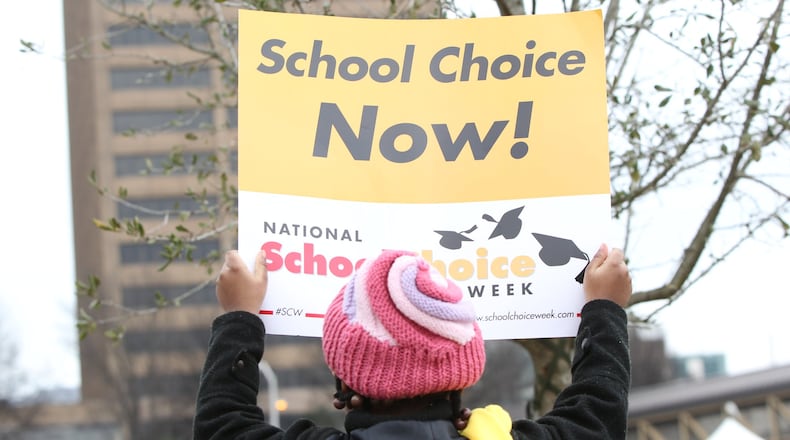Enrollment in charter schools authorized by Atlanta Public Schools is starting to plateau after years of growth.
The district’s 18 charter schools enrolled 9,467 students as of October, about 18% of Atlanta’s total enrollment of about 52,000. That’s according to a recent presentation made to the Atlanta school board.
Back in 2004, only 3% of APS students attended charter schools. By 2012, about 8% of APS students had chosen to enroll in charter schools.
Enrollment in charter schools has steadily increased as the district approved new schools, but it's beginning to plateau as existing schools reach the enrollment caps specified in their charters and finish adding on grade levels. Only one school, KIPP Soul, which was approved in 2017, is still expanding grade levels.
Still, the district reported about 6,500 students were on waiting lists for APS charter schools last year.
Projected charter school enrollment is expected to grow next year, but only by a few hundred, to 9,708 students.
About three quarters of APS charter school students are African American, while 16% are white. Racial demographics of traditional APS schools are fairly similar.
Just over half of APS charter schools exceeded the districtwide score on the state’s 2018 report card, which is largely based on standardized test scores.
But charter and traditional district-run schools aren’t the only kinds of schools within APS.
As part of the district's effort to improve its lowest-performing schools, the district closed and merged some schools. It also created a new kind of school model in 2016.
So-called "partner" schools are run by outside operators, charter-related groups that APS pays to manage and staff them. The groups sign a contract with the school district to run the school for up to 15 years, longer than the typical five-year charter school contract.
This upcoming school year, the district will welcome its sixth partner school when KIPP Metro Atlanta takes over Woodson Park Academy.
There are several key differences between APS charter and partner schools. One is that charter schools have a defined enrollment cap that limits their student numbers while partner schools do not.
As of October, there were 2,294 students enrolled in five partner schools. APS projects enrollment in partner schools will increase to 2,833 next school year when Woodson Park transitions.
Atlanta’s partner schools enroll a higher percentage of African-American students, who make up 96% of the enrollment.
None of the four partner schools that launched in time to be measured by the 2018 state report card scored higher than the district average.
There’s yet another type of public school that students who live in Atlanta can attend.
The APS charter school enrollment counts do not include students within the Atlanta district who attend charter schools authorized by the state. More than 1,200 students who live within the APS attendance zone were enrolled in those state-authorized charter schools as of April of 2018, according to the district.
In the fall, two more charter schools authorized by the State Charter Schools Commission will open within the Atlanta district's boundaries. Those schools are Ethos Classical Charter School and the Harriet Tubman School of Science and Tech.
About the Author
The Latest
Featured



